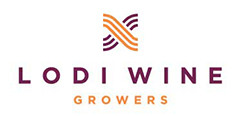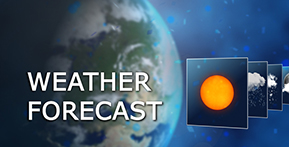MONDAY, JULY 3, 2023. BY CALIFORNIA ASSOCIATION OF WINEGRAPE GROWERS.
The West Coast Smoke Exposure Task Force (WCSETF) hosted its 3rd Annual Smoke Summit virtually on Wednesday, June 7, 2023.
Nearly 500 attendees registered and tuned in to learn about everything from wildfire preparedness to cutting-edge smoke taint research and the latest updates on crop insurance—no topic was left unexplored.
This year’s summit featured prominent researchers sharing their insights and recent discoveries on the impacts of wildfire smoke, updates from the USDA Agricultural Research Service (ARS) on their research activities, future initiatives, and the latest information regarding crop insurance policies and revisions specifically addressing smoke-related concerns. Speakers included Tim Rinehart, Tara McHugh, and Arran Rumbaugh, USDA ARS Representatives; Tom Collins, Washington State University; Elizabeth Tomasino, Oregon State University; and Kristine Fox, Pan American Insurance Services. Members of the WCSETF also provided updates on the recent work carried out by the task force and offered a sneak peek into the plans and objectives for the future.
Securing funding for smoke research has been a priority for the west coast states. During the summit, it was shared that the U.S. Congress has allocated $5 million, in each of the past four fiscal years, to USDA’s Agricultural Research Service (ARS) for wildfire smoke research efforts. Additionally, the three land-grant universities, UC Davis, Oregon State University, and Washington State University have been successful in securing USDA Specialty Crops Research Initiative (SCRI) Grants to further their work. Tim Rinehart, National Program Leader at USDA-ARS reviewed the significant progress made related to smoke exposure and emphasized the collaborative efforts of individuals across the nation who are actively engaged in studying the impact of smoke. ARS’s key priorities revolve around gaining a thorough understanding of smoke risk assessment thresholds and effective mitigation strategies. In addition, the department is actively involved in various research projects that focus on forecasting smoke exposure and exploring the potential of biotechnology in addressing the challenges posed by smoke.
Another priority of the task force is to enhance the Federal crop insurance program to better align with the insights gained from smoke research, specifically emphasizing the need to address smoke taint damage. By incorporating the findings into the insurance program, growers can receive appropriate coverage and support in the event of smoke-related disasters. Pan American Insurance Services’, Kristine Fox, provided updates on crop insurance and policies available to growers. Moving forward, Kristine outlined the pending changes for 2024 including a Quality Loss Option and a Federal Grapevine Insurance Program, which will insure for the death of the vine caused by freeze, hail, flood, fire, and failure of irrigation supply caused by naturally occurring peril.
Established in 2019, the WCSETF was specifically formed to address the impact of smoke exposure on vineyards and wineries located along the West Coast. Today, the task force is comprised of leadership from the following West Coast organizations: California Association of Winegrape Growers (CAWG), Allied Grape Growers, Wine Institute, Family Winemakers of California, Oregon Wine Board, Oregon Wine Council, Oregon Winegrowers Association, Washington State Wine Commission, Washington Winegrowers Association and Alisa Jacobson of Turning Tide Wines who heads the task forces research committee.
The combined efforts of the West Coast states in addressing smoke exposure issues contribute to the strength of the winegrape industry. Through this unified approach, the industry gains collective knowledge and resources, allowing for more effective advocacy and support.
CAWG, as an active advocate for growers’ well-being, plays a vital role in representing their interests within the WCSETF and beyond. By actively engaging in state and federal levels of policymaking, CAWG tirelessly promotes the importance of increased smoke research and the development of robust crop insurance programs. This advocacy work ensures that growers have the necessary tools and resources to navigate the complexities of smoke exposure and protect their livelihoods.
CAWG remains committed to being a strong voice for growers, advocating for their well-being and championing initiatives that support a sustainable and thriving winegrape industry.
Watch the 3rd Annual Smoke Summit below:
A special thanks to Natalie Collins, Jenny Devine, and Mindy DeRohan of CAWG for writing this article and allowing us to share this important information on our blog. Stay tuned for a future DIY blog post on how to freeze grape samples before a smoke event as a precautionary measure in the case of questionable smoke impact. The Lodi Winegrape Commission is a proud industry member of CAWG and has written letters of support for smoke taint research to help scientists like Dr. Anita Oberholster secure much-needed funding.
Have something interesting to say? Consider writing a guest blog article!
To subscribe to the Coffee Shop Blog, send an email to stephanie@lodiwine.com with the subject “blog subscribe.”
To join the Lodi Growers email list, send an email to stephanie@lodiwine.com with the subject “grower email subscribe.”
To receive Lodi Grower news and event promotions by mail, send your contact information to stephanie@lodiwine.com or call 209.367.4727.
For more information on the wines of Lodi, visit the Lodi Winegrape Commission’s consumer website, lodiwine.com.
For more information on the LODI RULES Sustainable Winegrowing Program, visit lodigrowers.com/standards or lodirules.org.


